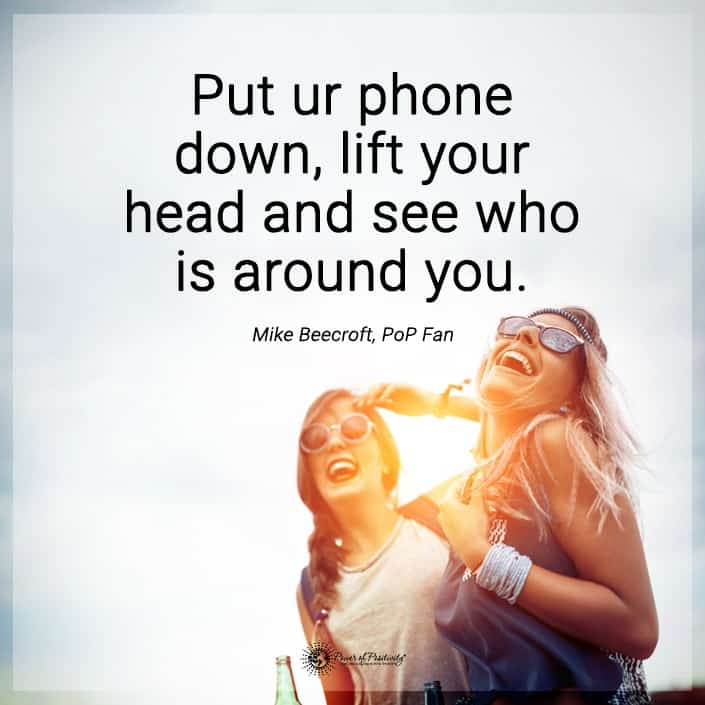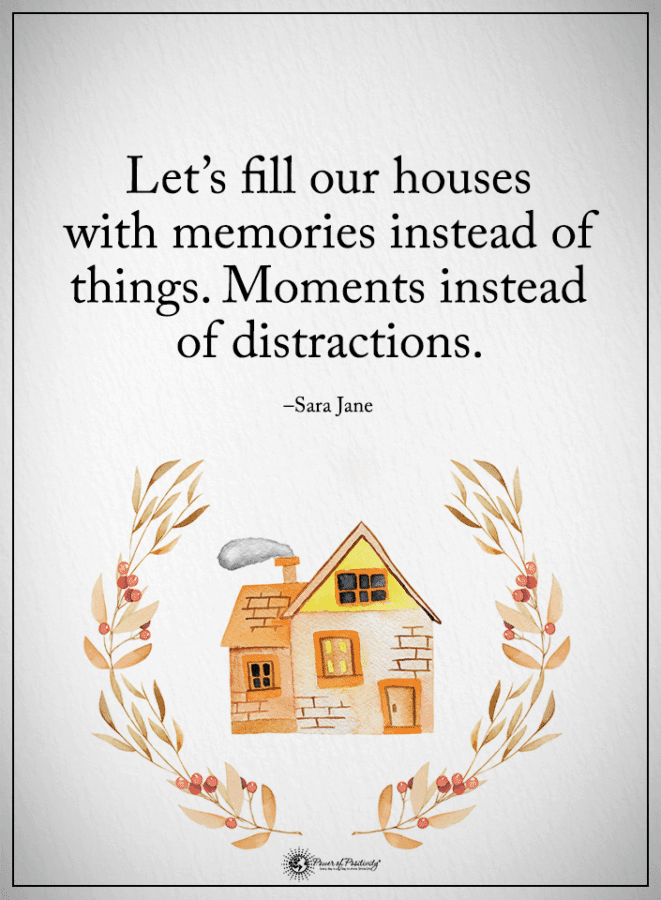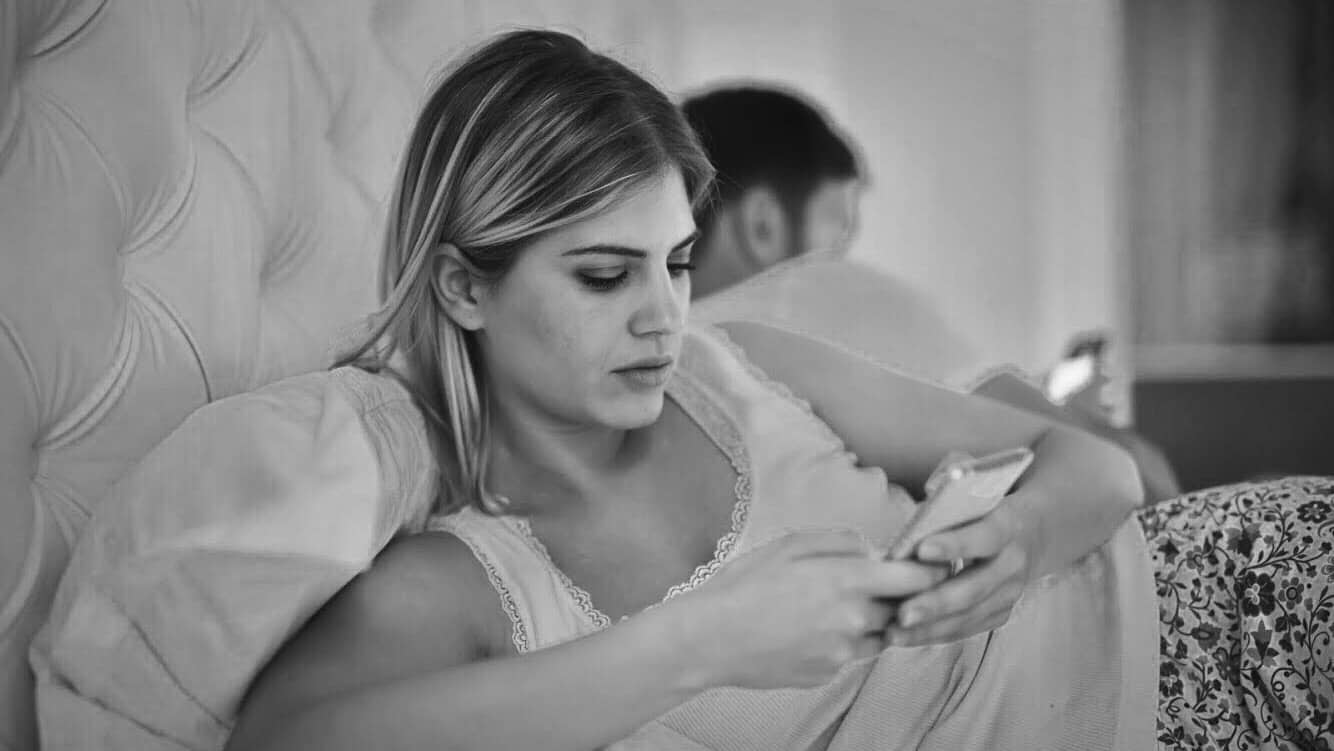Is your partner phone snubbing you?
“Can you repeat that?” It’s a question nobody wants to ask, and none want a partner to ask. Imagine trying to convey your feelings, only to look up and see your partner’s eyes glued to a tiny luminous screen. In a world of constant digital buzz, where text tones often overpower heartfelt conversations, phubbing – phone snubbing – silently corrodes numerous relationships. The behavior drowns out emotional exchanges with every tap or scroll.
In these times of digital distractions, it becomes crucial to safeguard the sanctity of our relationships. With love on one side and an unputdownable device on the other, navigating the balance without toppling over demands our attention. Indeed, it is urgent to do so.
As we look deeper into this, identifying the subtle yet telling signs of phubbing and exploring ways to navigate its challenges tactfully become paramount. Your relationship might be whispering for help amidst the digital chaos. It’s high time we tuned in, listened, and turned the volume down on our devices. Instead, we should lead with empathy, understanding, and a sincere desire to rekindle connections that technology has quietly begun to sever.
Identifying Phubbing: A Silent Relationship Intruder
In an era where digital pings incessantly invade our lives, deciphering whether your partner’s phone usage is crossing into phubbing can be subtly complex. While phones are inescapable companions in our daily affairs, the thin line they tread between necessity and obtrusion in our personal spaces often blurs.
So, let’s explore how to distinctly identify when your partner’s digital interaction shifts from being merely habitual to becoming phubbing.

The Discreet Disconnect of Phubbing
Imagine you have just shared a pivotal moment of your day. But your words echo in a void as your partner nods absentmindedly, their fingers flitting over the screen. Unresponsive behavior doesn’t always manifest as stark ignorance.
Instead, it might be the diverted glances toward their phone mid-conversation, the mumbled “uh-huh” that holds no honest acknowledgment of your words, or the pauses in dialogue as they sneak a quick peek at a message.
This subtle detachment, where your voice can no longer compete with the digital world, indicates phubbing. Unresponsiveness becomes apparent in their lack of engagement or absent-minded reactions. Additionally, their feedback might seem disconnected or delayed. Recognizing this may involve paying attention to your partner’s eye contact, the continuity of your conversations, and the relevance of their responses.
Phone Priority: The Screen That Shields
Is the first ‘good morning’ in your house directed towards a social media feed? Does the phone occupy a hand even as you share a cozy dinner? When your partner consistently prioritizes their phone, placing it as a shield that hinders intimate interactions and shared moments, it sends the silent signals of phubbing.
Phone priority isn’t only about blatantly choosing to engage with the device. It could be as inconspicuous as eyes darting towards every notification. It might also present as the phone perpetually being within arm’s reach, even in moments of closeness. The invisible (and uninvited!) guest during your outings. Identifying this behavior is pivotal. You must notice your partner’s overt actions. But you must also observe the subtle ways in which their phone presence intercepts your interactions.
The Ten Signs of Phubbing Everyone Should Know
Within the cocoon of companionship, where shared glances and silent gestures weave tales of unity and understanding, the subtle invasion of phubbing often escapes the naked eye. Yet, like a gentle tide that slowly shapes the shore, its signs, although seemingly trivial at first, gradually carve discernible shifts in relational dynamics.
So, let’s unfold the often overlooked yet revealing signs that whisper the tales of phubbing in a relationship.
1 – Chronic Distraction: The Silent Stealer of Moments
A caress lost amidst a scroll, a story overshadowed by a ‘like’ or a gaze, veering towards the screen, recurrent distraction silently steals away the essence of shared moments. Your partner might be physically present. Still, their mind wanders through the digital alleys. As a result of the distraction, they leave your shared emotional and physical space vacant.
To identify chronic distraction, observe the continuity in your interactions. Notice whether their phone constantly lures them away, making your moments together fragmented and their presence intermittent. It’s not merely about them using the phone. Instead, it concerns the moments, emotions, and connections lost to digital engagement.
2 – Absence in Conversations: Silent Words in Verbal Exchanges
Conversations may turn into monologues when phone snubbing enters the scene. Your partner’s words might be present. Yet, their essence, attention, and emotional participation seem to be held captive by their device.
Take note of the words they speak. But also notice the emotion, attention, and sincerity within them. A partner engrossed in this behavior might speak. But their words often lack depth, responsiveness, and active participation. In fact, they may ignore even critical discussions.
3 – Your Partner Prioritizes Digital Interactions: The Invisible Competitor
If the ding of a notification supersedes the pulse of a conversation, your partner may prioritize their phone over you.
Watch carefully. Here are a few signs your partner prioritizes the digital space over your reality as a couple:
- Responding to texts during conversations
- Engaging with virtual platforms during shared moments
- Sharing more smiles on social platforms than on you.
These behavioral signs are not about incidental or necessary digital interactions. Instead, they show a persistent pattern where digital engagements perennially overshadow your relationship.
4 – Emotional Reliance on Virtual Validation: When Likes Override Love
For some people, digital applause often echoes louder than silent appreciation. That response can reveal an addiction to the phone. The problem presents as emotional reliance on virtual validation.
Does your partner’s mood, self-worth, or emotional state begin to sway with likes, comments, and online affirmations? They may phub you often if they rely on emotional validation via phone.
5 – The Screen Shield: Avoiding Emotional Conversations with Digital Diversions
An additional sign of phubbing occurs when the phone screen serves as a shield. Your partner may use it to avoid vulnerability. It’s how they hide from emotional conversations and intimate connections.
Observe whether the onset of emotional dialogue sends your partner instinctively reaching for their digital device.
Is the screen becoming a convenient escape during moments of emotional complexity, a shield that safeguards from the vulnerabilities that genuine conversations demand? This behavior is not an occasional distraction. Instead, it becomes a consistent pattern where screens conveniently surface as protective shields amidst emotional interactions. Thus, they avoid authentic emotional presence.

How to Help Your Partner Realize They’re Phubbing You
A relationship where phubbing permeates can be isolating and perplexing, especially when your partner may be unaware of their behavior. Steering them toward realization without inducing defensiveness or resentment demands a delicate, empathetic approach.
Let’s explore strategies to help your partner become aware of their phubbing gently and constructively.
1 – Begin with Empathy, Not Accusation
Understand that your partner’s phubbing might stem from habit rather than intentional neglect. Approach the topic with empathy and express your feelings without casting blame. Try to use “I feel” statements like, “I feel ignored when you use your phone during our conversations.” This technique keeps the discussion centered on your emotions rather than accusing them.
2 – Use Concrete Instances of Phubbing
Instead of speaking in generalities, pinpoint specific instances where you felt phubbed. Describing particular moments where their attention veered more towards the phone than the interaction. This detail can provide clarity. It can also stop the discussion from seeming baseless or exaggerated.
3 – Establish a No-Phone Time
Introduce the concept of dedicated no-phone times or zones. These might occur during meals or in the bedroom. Explain that this is not a punitive measure. Instead, it is a way to enhance the quality of your together time. Please focus on the benefits to reduce resistance and gain their cooperation.
4 – Engage in Analog Activities
Sometimes, subtly shifting away from digital distractions can be an eye-opener. Engage in activities that require undivided attention and presence. Try some fun activities like hiking, board games, or art projects.
Conscious engagement in such activities might help your partner naturally realize the stark contrast between divided and undivided attention.
5 – Seek Feedback
Ask your partner how they feel about your phone usage and whether it impacts them. This discussion creates a reciprocal conversation. It also provides them a platform to reflect and share, making them more receptive to your feelings and observations.
6 – Offer Positive Reinforcement
When your partner does commit to spending undistracted time with you, acknowledge and appreciate it. Positive reinforcement can motivate them to be mindful of their digital usage consistently.
7 – Propose a Digital Detox
Suggest partaking in a digital detox together. During that time, you will spend a designated time away from screens. This effort strengthens your bond and subtly communicates the importance of undistracted time together.
Guiding your partner towards recognizing and fixing the behavior demands empathy and open conversation. Remember that awareness is the first step towards change. With your gentle nudges, your partner can step from unconscious phone use into conscious connection.

Final Thoughts on How to Identify and Fix Phubbing
Couples must learn to recognize and repair this harmful behavior to maintain the integrity and depth of relationships. Balancing digital engagement without it permeating personal connections ensures the sustenance of quality interactions in relationships.
The strength of your connection strengthens as you grow together. Therefore, overcoming your phubbing situation is an opportunity to create a stronger love.



















